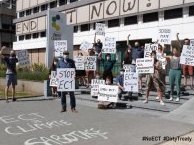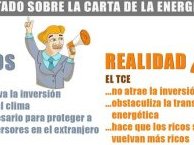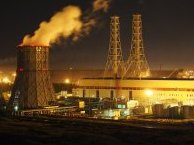
The Energy Charter Treaty (ECT) is a plurilateral investment agreement between 53 European and Central Asian countries. It was signed in 1994 and entered into force in April 1998.
About 30 countries around the world are at different stages of joining the ECT. Burundi, Eswatini (formerly Swaziland) and Mauritania are first in line, followed by Pakistan and Uganda.
The original objective of the ECT was to overcome the political and economic divisions between Eastern and Western Europe after the demise of the Soviet Union, as well as to strengthen Europe’s energy security. European countries wanted to secure the access to fossil fuel resources of the former Soviet countries by protecting foreign energy investments in these countries.
The ECT provides for an Investor State Dispute Settlement (ISDS) mechanism to resolve disputes between an investor and a member state. To this day, it is the world’s most widely used legal instrument for initiating ISDS arbitrations. It has been invoked by investors in 124 cases.
Critics argue that as with most other investment agreements, it places investors’ economic rights and interests over the social, ecological and economic interests of host states and their societies. The ECT imposes obligations on the host state but not on foreign investors. The ECT has also been condemned by environmental activists for protecting the fossil fuel industry and undermining serious climate action.
Spain has been subject to 45 arbitration disputes under the ECT after it implemented a series of energy reforms affecting the renewables sector, including a reduction in subsidies for producers. While some cases are still pending, Spain has already been ordered to pay over €800 million.
You can find out more about the Energy Charter Treaty on the ECT’s dirty secrets website.
Key cases include:
• Vattenfall (Sweden) vs. Germany: In 2007 the Swedish energy corporation was granted a provisional permit to build a coal-fired power plant near the city of Hamburg. In an effort to protect the Elbe river from the waste waters dumped from the plant, environmental restrictions were added before the final approval of its construction. The investor initiated a dispute, arguing it would make the project unviable. The case was ultimately settled in 2011, with the city of Hamburg agreeing to the lowering of environmental standards.
• Yukos (Isle of Man) vs. Russia: Yukos was a Russian oil and gas company. It was acquired from the Russian government during the controversial “loans for shares” auctions of the mid 1990s, whereby some of the largest state industrial assets were leased (in effect privatized) through auctions for money lent by commercial banks to the government. The auctions were rigged and lacked competition, and effectively became a form of selling for a very low price. In 2003, the Yukos CEO was arrested on charges of fraud and tax evasion and the following year Yukos’ assets were frozen or confiscated. In 2007 Yukos’ former shareholders filed a claim for over US$100 billion, seeking compensation for their expropriation. The dispute resulted in 2014 in the arbitrators awarding the majority shareholders over US$50 billion in damages. The investors have been trying to enforce the award in several countries since then.
• NextEra (Netherland) vs. Spain: The Dutch investor filed for arbitration in May 2014, after Spain changed the regulatory framework applicable to its investment, namely the construction of two solar power plants. NextEra claimed that Spain abolished the long-term premium and tariff system, negatively affecting the profitability of the project. However, Spain alleged that NextEra should have been aware that changes could be made to the regulatory regime. In May 2019, the investor was awarded around €290 million. Spain filed for annulment in October 2019.
Photo: Marc Maes / Twitter
Last update: April 2020











